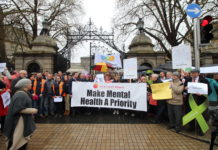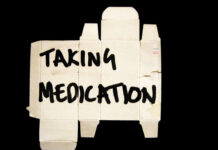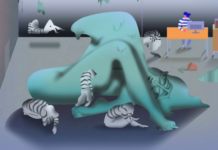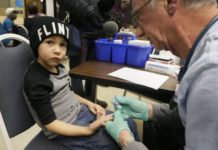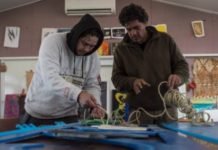Paxil Progress
Paxil Progress is a forum for people engaged in withdrawal from Paxil. It also offers adverse drug reaction reporting, FDA Warnings, published withdrawal studies,...
It’s Time for Full Legal Equality for People With Diagnoses
In this piece for the National Survivor User Network, Liz Sayce argues that people with mental health conditions will continue to stay silent about their...
The “I Am Not The Butcher” Speech
On Thursday I had an interaction with a psychologist where I basically said, "I am not sure I want to attend a workshop you...
How to Integrate Culture into Mental Health Care
Researchers explore how culturally responsive services can create greater equity in mental health care.
Psychology Needs New Concepts and Healing Models for Racial Trauma
Contemporary empirical research explores new ways to conceptualize and heal racial trauma through anticolonial and sociohistorical lenses.
Why You Should Never Tell Someone Who’s Grieving to Move On
In this interview for Thrive Global, psychoanalyst Robert Stolorow explains why we should not seek to heal or fix the grief we experience from trauma...
Danish Study Finds Better 10-year Outcomes in Patients Off Antipsychotics
Study finds that 74% of patients with a psychotic disorder off antipsychotics at end of 10 years are in remission.
Religion and Spirituality Protect Against Depression
In The American Journal of Psychiatry, a longitudinal study of 114 persons at high risk for depression found that those who reported more religiosity...
Review Reinforces Social Connection as Protective Health Factor
Is a lack of social connection in the US harmful to health? In a review of social connection and health literature, researcher calls for a societal shift in values towards interdependence.
Relieving Poverty Significantly Improves Mental Health
Giving money to people diagnosed with severe mental health issues can significantly improve depression and anxiety. A new study, published in the October issue of the Journal of Community Mental Health, found that giving about $73 US dollars per month for recreational spending can also reduce social isolation and strengthen a sense of self.
“Loneliness May Warp Our Genes, And Our Immune Systems”
NPR reports how loneliness can change our bodies and affect our physical and mental health. "There are things we can do to get out of a depressed or lonely state, but they're not easy," they report. "Part of the reason is because these negative psychological states develop some kind of molecular momentum."
Study Deems Support, Not Drugs, Best for Youth at Risk of Psychosis
Research by five U.K. universities across multiple sites for up to two years divided 288 young adults (14-35 years) deemed at risk for psychosis...
The Demoralized Mind
From openDemocracy: The distress, boredom, and disillusionment so commonly diagnosed as depression may actually result from the demoralization people experience in consumerist cultures. Large-scale cultural change,...
Why Stable Relationships Fight Trauma and Stress in Kids
From The Conversation: Adverse Childhood Experiences (ACEs) can cause toxic stress, impacting children's brain development and physical and mental health well into the future. Having...
“How We Label People with ‘Mental Illness’ Influences Tolerance”
Honor Whiteman reports on a study in The Journal of Counseling & Development, which found that people may be less tolerant of an individual...
Johann Hari Continues to Speak Out
Johann Hari, British journalist and author of the new book Lost Connections: Uncovering the Real Causes of Depression—and the Unexpected Solutions, continues to speak out...
More Evidence for the Lasting Psychological Impact of Lead Exposure in Childhood
New research points to numerous harmful effects of high-level lead exposure in childhood on adult mental health and personality characteristics.
Barriers to Engaging in Self-Help CBT for Voice Hearing
Individuals with lived experience and clinicians share about barriers and facilitators to guided self-help CBT for voice hearing.
The History and Effectiveness of Peer Support from 18th-Century France to Today
Yale's Program for Recovery and Community Health will publish in World Psychiatry's June issue a review the history of peer support, from its roots...
Does Psychotherapy Reproduce or Disrupt Neoliberal Capitalism?
Researchers explore neoliberal influences on interactions in psychotherapy and question whether the radical potential of psychotherapy can counter prevailing social systems.
What is Loneliness And How Can it be Addressed?
As an increasing amount of research seeks to address the epidemic of loneliness, conceptual clarity is needed.
DACA has “Immediate and Positive” Impact on Lives of Immigrant Students, Study Finds
New research demonstrates the benefits and complexities for immigrants transitioning from undocumented to DACA status.
Study Finds Heavy Metal Music Beneficial to Mental Health
A new study highlights the role heavy metal music plays in the mental health of adolescents facing adversity.
Creative Approach to Mental Health Underfunded
From Stuff: Ōtautahi Creative Spaces, a center that offers art therapy workshops, was recently set up in response to the earthquakes in Christchurch, New Zealand, where...



